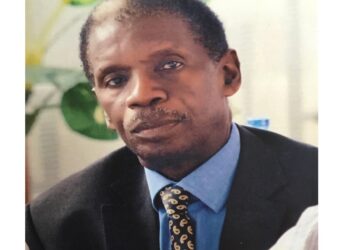I grew up in a rural part of Eastern Uganda. Christmas in the village was next level. It was super different.
Uganda is about 84% Christians…and so Christmas is the biggest day in the year. It’s the most celebrated day. The celebrations are marked by parties, feasting on voluminous amounts of food. It is the day when you can eat and become sick…and it is okay. But more than that…it is the events before Christmas that made it even more interesting.
Uganda has only about 20% of its population living in urban areas. Between 20th-24th December, depending on which day of the week Christmas will fall, people that live in urban areas start moving to the rural areas…to be with their relatives in the villages where most of them were born. The traffic on the roads is simply sickening.
This is how I saw these days, while I was young. On 23rd December, in the village, it is the day for eating Pork (for those who love it). 24th is the day for slaughtering cows and goats. No matter how poor a rural household is, they will always have something for Christmas.
On 24th December, we start receiving our relatives who stay in towns. They arrive in pomp and ceremony. Most of them come with our cousins, nephews, and nieces…most of whom either speak English or the local languages of the towns where they stay. Those kids…they have English/exotic names… they call their parents Daddy/Mummy…for us we called our parents… Maama, or Baaba or Taata. Those kids could cry at anything…even just seeing an aunt…or a goat…or cow. Those kids!!! Huh, ehm.
The kids would speak perfect English, to our amazement. How can a child who is not yet in school speak so fluently? The kids knew literally everything. They could even touch the remote and change the TV channel. For us, the remote was scared. You only touched when there was no elder present. But those kids would do it, without fearing.
Those kids, from town, would make us be beaten. Our parents called them ‘Omwana wa’beene’ (a word used to refer to a special person…someone’s child). We handled them like glass. They could get you beaten for anything. Those kids!!! Huh ehm.
Those children came dressed in beautiful clothes and nice shoes. The bodies of these children are as clear as the back of a snail- they have no scar or mark. The girls had nicely weaved and curly hair. The confidence they carried, the freedom they had…and the sense of entitlement- we could only imagine.
Our aunties and uncles would carry the best foods, bread, spices, spargatte and all these things you only found in town. One time my grandfather said he was not going to eat Spargatte. He asked, ‘Guno omutyere omuwanvu mugutoire wa? Nze tigulye!” (Where have you got this long rice? I will not eat it.) This sent all the town folks into a basket of laughter.
If you were lucky and your relatives had a private car…hoooo… you would scream. A car parking at your home was a sign of success for your family. The car represented the apex of success. Everyone admired your family. You were, collectively, regarded happy and successful.
In the early 90s, there was a new era. The radio cassette had arrived in the village. The people coming from town would come with their radios…some of which had double speakers. The radios were something else. The big speakers would pierce through the silence of the night with such beautiful south African or Congolese music. It was the music then.
The town aunties would make us dance. In our poor torn clothes we would wiggle our buttocks… sending them laughing. We had our local version of the urban dances we watched on TV. We had kids who ‘knew’ how to dance. They danced the confidence of a night dance. With no formula or rythme, we would simply dance like no one was watching. For a moment, it almost felt like we were in a disco.
If you came from a household where you had many urban relatives, you would call your peers to come and admire how rich your relatives are.
The relatives also brought us new clothes. We would almost want to sleep in the new clothes. We prized them…it almost felt like they had come from heaven. Those clothes, bought from Owino market, a large make-shift shopping center for used clothes, had a nice scent that felt as though the clothes had just come from a plane. We didn’t wash those clothes. They smelt so nice. Oh boy! The village in us.
Then the aunties started the town rules. No doing this. No eating like this. No playing like this. They greet like this. They seat like this. They don’t eat like that. They bathe like this. The town aunties and uncles became bishops of rules. Their children were used to a certain structure- one we never had…or ever wanted. You had to bathe by a certain hour. You had to sleep after eating– as a rule.
You had to keep silent at some point… there was a rule on just about everything. We hated them- but we liked the things they brought…and how they smelt.
On the evening of 24th December, they also asked us to bring our school reports. Those who performed well would be given money or other gifts. Those who performed badly were scolded.
Most families, in the village, would start this day by eating a big breakfast composed on ‘byenda’ (intestines of a cow or goat). It is a delicacy in Uganda. They even recommend that women who have just given birth eat it…to ‘heal’ them and help them recover quickly.
So…on 24th …most people eat the intestines. Then lunch is beef…and matooke, Millet, cassava and other foods. In the evening, the men descend on places where they prepare local brew/alcohol to welcome Christmas.
Drinking/Boozing is not just a way of celebrating… it’s part of the culture in many parts of the country. So the festive season makes it even worse. People drink until they start seeing things upside down. In fact, by the time people cross into Christmas, they are already drunk.
For the most part, women are home…preparing for Christmas. Preparations include getting the food ready, collecting fireworks, water, and all supplies. The men take a back seat and let the women do most of the work. THEN, CHRISTMAS COMES. THAT, MY FRIENDS, WILL BE A STORY FOR ANOTHER DAY. CHRISTMAS IN THE VILLAGE IS A BOOK THAT HAS NEVER BEEN WRITTEN. IT IS A PHENOMENON.
Do you have a story in your community or an opinion to share with us: Email us at editorial@watchdoguganda.com













